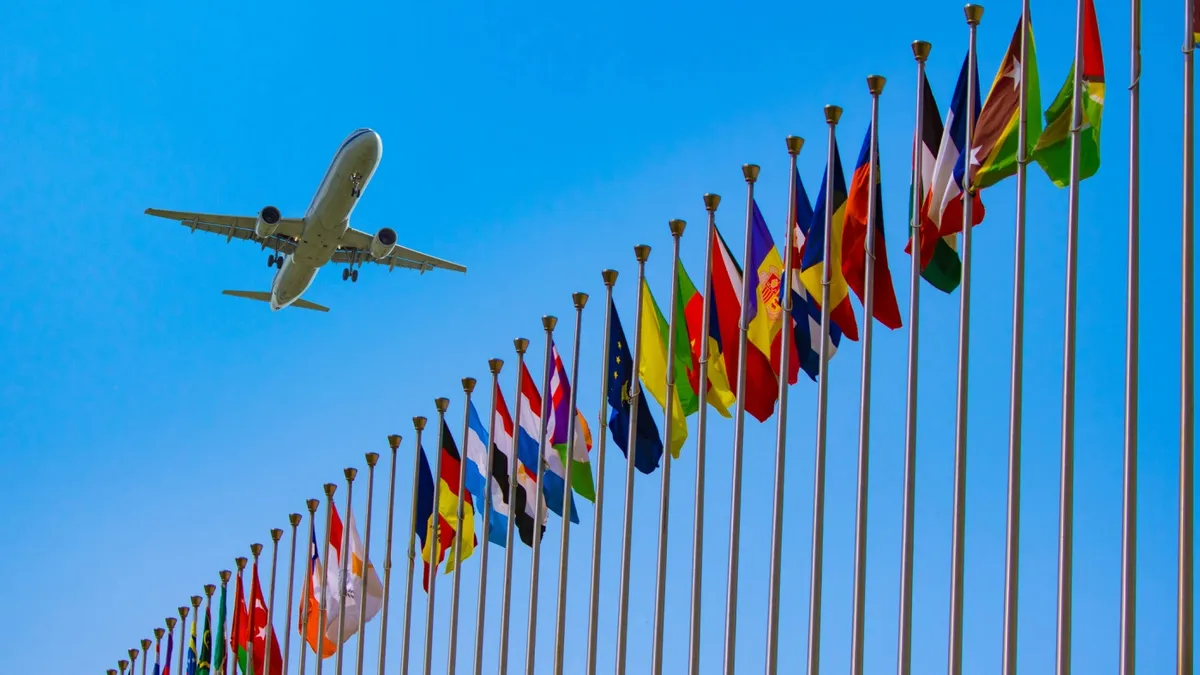
The Trump administration is contemplating a significant expansion of its travel ban, potentially affecting up to 36 additional countries. This development comes from a memo obtained by NPR, which outlines plans to increase the number of nations facing restrictions from the current 12. The memo was directed to diplomats in approximately two dozen African nations, along with countries in Central Asia, the Caribbean, and several Pacific Island nations.
Signed by Secretary of State Marco Rubio, the memo highlights critical concerns regarding the vetting and screening protocols of the identified countries. These nations are said to possess inadequate information that justifies a partial or complete suspension of entry for their citizens into the United States. The memo emphasizes the urgency for these countries to respond by Wednesday, detailing their plans to address U.S. concerns and adhere to new State Department requirements.
Among the reasons cited for the potential travel ban are associations with state sponsors of terror and instances of citizens from these countries engaging in terrorist activities within the United States. Additionally, some countries are criticized for their inability to provide reliable identity documents, maintain accurate criminal records, or combat widespread government fraud. Other issues include high rates of visa overstays and incidents of antisemitic or Anti-American activities by their citizens in the U.S.
The memo indicates that countries failing to adequately address these concerns could face a travel ban as early as August. Limiting entry from these nations is viewed as a critical measure for enhancing national security and safeguarding American communities, as stated by Department of Homeland Security spokesperson Tricia McLaughlin.
The memo also outlines requirements for foreign governments to cooperate with the U.S. in deporting foreign nationals when necessary for national security. Specific concerns regarding a country could be alleviated if that nation agrees to accept deportees from the U.S. This approach is aimed at fostering cooperation from foreign governments to facilitate the deportation of their citizens, thereby strengthening national security and restoring integrity to the immigration system.
Despite the administration's rationale, critics argue that the proposed travel bans are racially and religiously discriminatory, disproportionately targeting many African and Muslim-majority nations. The current list of countries facing potential bans includes: Angola, Antigua and Barbuda, Benin, Bhutan, Burkina Faso, Cabo Verde, Cambodia, Cameroon, Côte D'Ivoire, Democratic Republic of Congo, Djibouti, Dominica, Ethiopia, Egypt, Gabon, The Gambia, Ghana, Kyrgyzstan, Liberia, Malawi, Mauritania, Niger, Nigeria, Saint Kitts and Nevis, Saint Lucia, Sao Tome and Principe, Senegal, South Sudan, Syria, Tanzania, Tonga, Tuvalu, Uganda, Vanuatu, Zambia, and Zimbabwe.
As of June 4, several countries are already under full travel bans, including Afghanistan, Myanmar, Chad, Republic of Congo, Equatorial Guinea, Eritrea, Haiti, Iran, Libya, Somalia, Sudan, and Yemen. Additionally, partial bans are in effect for Burundi, Cuba, Laos, Sierra Leone, Togo, Turkmenistan, and Venezuela.
In conclusion, the Trump administration's potential expansion of the travel ban raises significant concerns about national security while also igniting debates about discrimination and the ethical implications of such policies. As developments unfold, the response of the affected nations and the international community will be closely monitored.